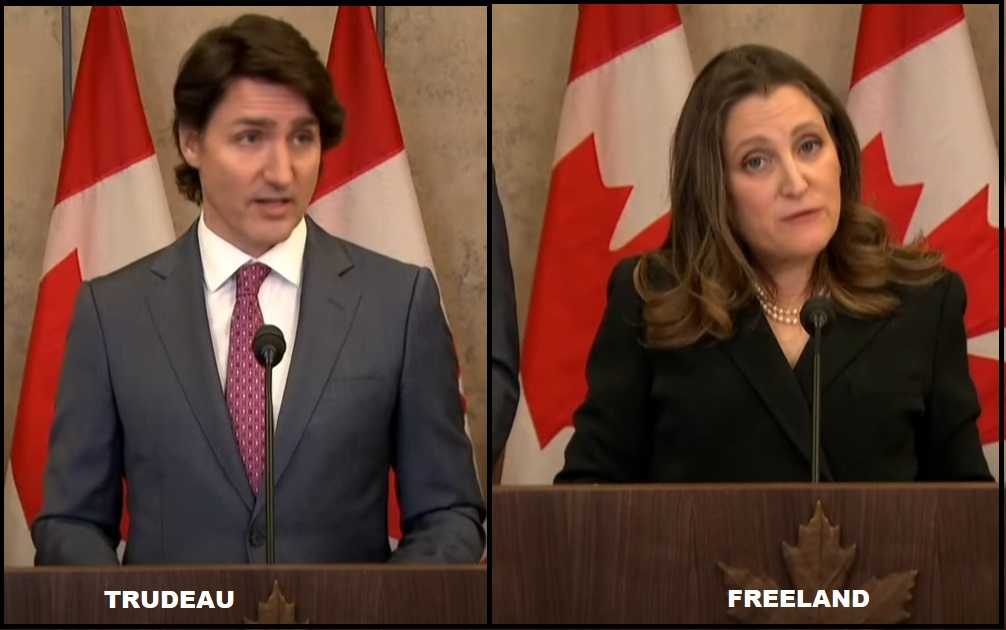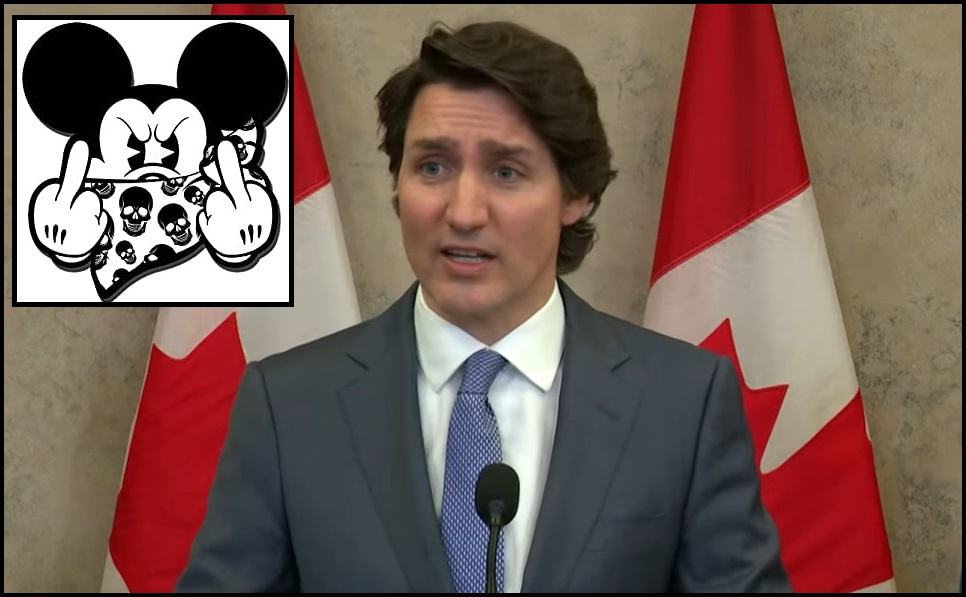Justin from Canada and Finance Minister Chrystia Freeland, used the invocation of the Canadian Emergency Powers Act to seize Truckers’ and their supporters bank accounts, block mortgages, eliminate loans and credit cards, seize personal assets and otherwise use financial mechanisms to target their political opposition.
Tuesday a federal judge in Canada ruled the use of the Emergency Powers Act was unconstitutional.
CANADA – […] On Feb. 14, 2022, the federal government invoked the Emergencies Act for the first time in its history, arguing at the time that the national security risks stemming from the protests justified its use.
The move allowed the federal government to enact wide-sweeping but temporary powers to help officials crack down on protesters’ access to funds, grant the RCMP jurisdiction to enforce local laws, designate critical infrastructure and services, and impose fines and imprisonment on participants who refused to leave the protest zone.
“I have concluded that the decision to issue the Proclamation does not bear the hallmarks of reasonableness – justification, transparency and intelligibility – and was not justified in relation to the relevant factual and legal constraints that were required to be taken into consideration,” stated Federal Court Justice Richard Mosley.
Mosley added that “there can be only one reasonable interpretation” of the Emergencies Act and CSIS Act, and that he believes “the legal constraints on the discretion of the GIC to declare a public order emergency were not satisfied.”
Mosley also stated that, factoring for the definition of a “national emergency” under the Act, “there was no national emergency” to justify its use, and that “the decision to do so was therefore unreasonable” and beyond the powers of the law. (read more)


